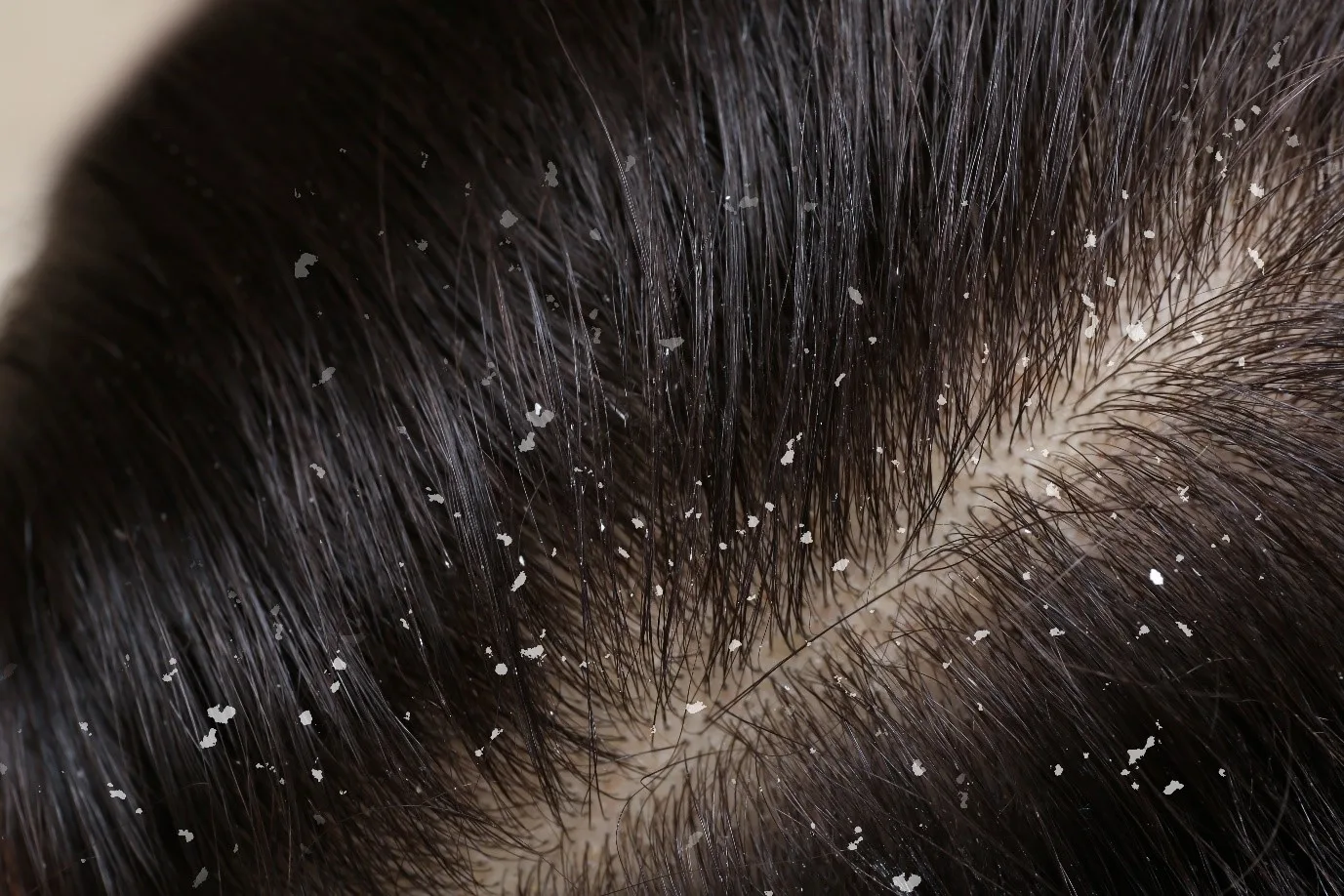What are the symptoms of a smelly scalp?
A smelly scalp can be indicative of various issues and may present with several symptoms. Common signs include:
- Unpleasant Odor: A persistent, strong, or foul smell emanating from the scalp, even after washing.
- Oily or Greasy Scalp: Excessive oil production on the scalp can contribute to an unpleasant odor.
- Dandruff or Flakiness: Visible flakes or scales on the scalp, which can sometimes be accompanied by an odor.
- Itching or Irritation: The scalp may feel itchy, irritated, or uncomfortable.
- Redness or Inflammation: The skin on the scalp might appear red or inflamed, especially if there is an underlying condition causing the odor.
- Buildup of Product Residue: Accumulation of hair products, such as gels or sprays, can contribute to a smelly scalp if not properly cleansed.
- Increased Sweat Production: Excessive sweating on the scalp can contribute to a bad odor, especially if combined with other factors like poor hygiene.
- Scalp Infection: Symptoms such as pus, sores, or lesions can indicate an infection that may also produce an unpleasant smell.
- Changes in Hair Texture: The hair may feel greasy or look dull and lifeless if the scalp is not clean.
What are the causes of a smelly scalp?
A smelly scalp can result from various factors that lead to an imbalance or buildup of substances on the scalp. Here are common causes:
1. Poor Hygiene:
- Infrequent Washing: Not washing the scalp regularly can lead to the accumulation of sweat, oils, and dirt, causing odor.
- Inadequate Rinsing: Not rinsing out shampoo or conditioner thoroughly can leave residues that contribute to a bad smell.
2. Excessive Oil Production:
- Sebum Overproduction: Overactive sebaceous glands produce excess oil, which can mix with sweat and bacteria, leading to an unpleasant odor.
3. Dandruff or Scalp Conditions:
- Seborrheic Dermatitis: A common scalp condition causing flaky, itchy skin that can produce an odor.
- Psoriasis: Scalp psoriasis can cause scaling and inflammation, sometimes accompanied by a smell.
4. Scalp Infections:
- Fungal Infections: Conditions like ringworm of the scalp can cause odor along with itching and hair loss.
- Bacterial Infections: Bacterial infections can produce pus or discharge, contributing to a foul smell.
- Viral Infections: Certain viral infections can lead to secondary bacterial growth and odor.
5. Excessive Sweat:
- Hyperhidrosis: Excessive sweating on the scalp can mix with bacteria and oil, causing odor.
6. Product Buildup:
- Hair Products: Accumulation of hair styling products, such as gels, hairsprays, or serums, can lead to residue buildup and odor if not properly cleaned.
7. Diet and Lifestyle Factors:
- Dietary Influences: Certain foods or beverages, such as spicy foods or alcohol, can affect body odor, including the scalp.
- Smoking: Tobacco use can contribute to body odor, including a smelly scalp.
8. Hormonal Changes:
- Hormonal Fluctuations: Changes in hormone levels, such as during puberty or pregnancy, can affect oil production and scalp odor.
9. Medical Conditions:
- Systemic Conditions: Conditions like diabetes or kidney disease can sometimes affect body odor, including the scalp.
Addressing these causes typically involves improving scalp hygiene, using appropriate treatments for any underlying conditions, and making lifestyle adjustments if necessary. If the problem persists despite these measures, consulting a healthcare provider is advisable for a thorough evaluation and appropriate treatment.
What is the treatment for a smelly scalp?
Treatment for a smelly scalp focuses on addressing the underlying cause of the odor and improving scalp hygiene. Here are some common approaches:
1. Improve Hygiene Practices:
- Regular Washing: Use a mild, anti-bacterial, or anti-fungal shampoo to wash the scalp regularly. Daily washing might be necessary if there is excessive oil or sweat.
- Thorough Rinsing: Ensure that all shampoo and conditioner are completely rinsed out to prevent residue buildup.
2. Use Specialized Shampoos:
- Anti-Fungal Shampoos: For conditions like dandruff or seborrheic dermatitis, shampoos containing ketoconazole, selenium sulfide, or zinc pyrithione can help.
- Anti-Bacterial Shampoos: For bacterial infections, shampoos containing ingredients like chlorhexidine may be useful.
3. Address Product Buildup:
- Clarifying Shampoos: Occasionally use a clarifying shampoo to remove buildup from hair products. Avoid overuse to prevent scalp dryness.
- Avoid Excessive Product Use: Reduce the amount of hair styling products used to minimize residue and buildup.
4. Manage Excess Oil Production:
- Blotting Papers: Use scalp blotting papers or powders to absorb excess oil between washes.
- Adjust Hair Care Routine: Avoid heavy, oil-based hair products and opt for lighter formulations.
5. Treat Scalp Infections or Conditions:
- Consult a Healthcare Provider: If you suspect an infection or persistent scalp condition, seek medical advice. Treatment may include antibiotics, antifungal medications, or topical treatments prescribed by a doctor.
6. Improve Diet and Lifestyle:
- Hydrate and Eat Healthily: Drink plenty of water and maintain a balanced diet to support overall health and reduce body odor.
- Avoid Triggers: Limit consumption of foods or substances that may exacerbate odor, such as spicy foods or alcohol.
7. Consider Hormonal and Medical Factors:
- Evaluate Hormonal Changes: If hormonal fluctuations are contributing to the problem, consult a healthcare provider for guidance on managing these changes.
- Check for Systemic Conditions: If there are underlying medical conditions affecting body odor, address these with appropriate medical treatment.
8. Maintain Proper Hair Care:
- Avoid Tight Hairstyles: Allow the scalp to breathe by avoiding tight hairstyles that can trap sweat and oils.
- Use Gentle Hair Accessories: Choose hair accessories that don’t irritate the scalp.
Implementing these strategies should help improve scalp odor. If the issue persists despite these measures, consult a healthcare provider for a thorough assessment and tailored treatment plan.

Leave a Reply
You must be logged in to post a comment.